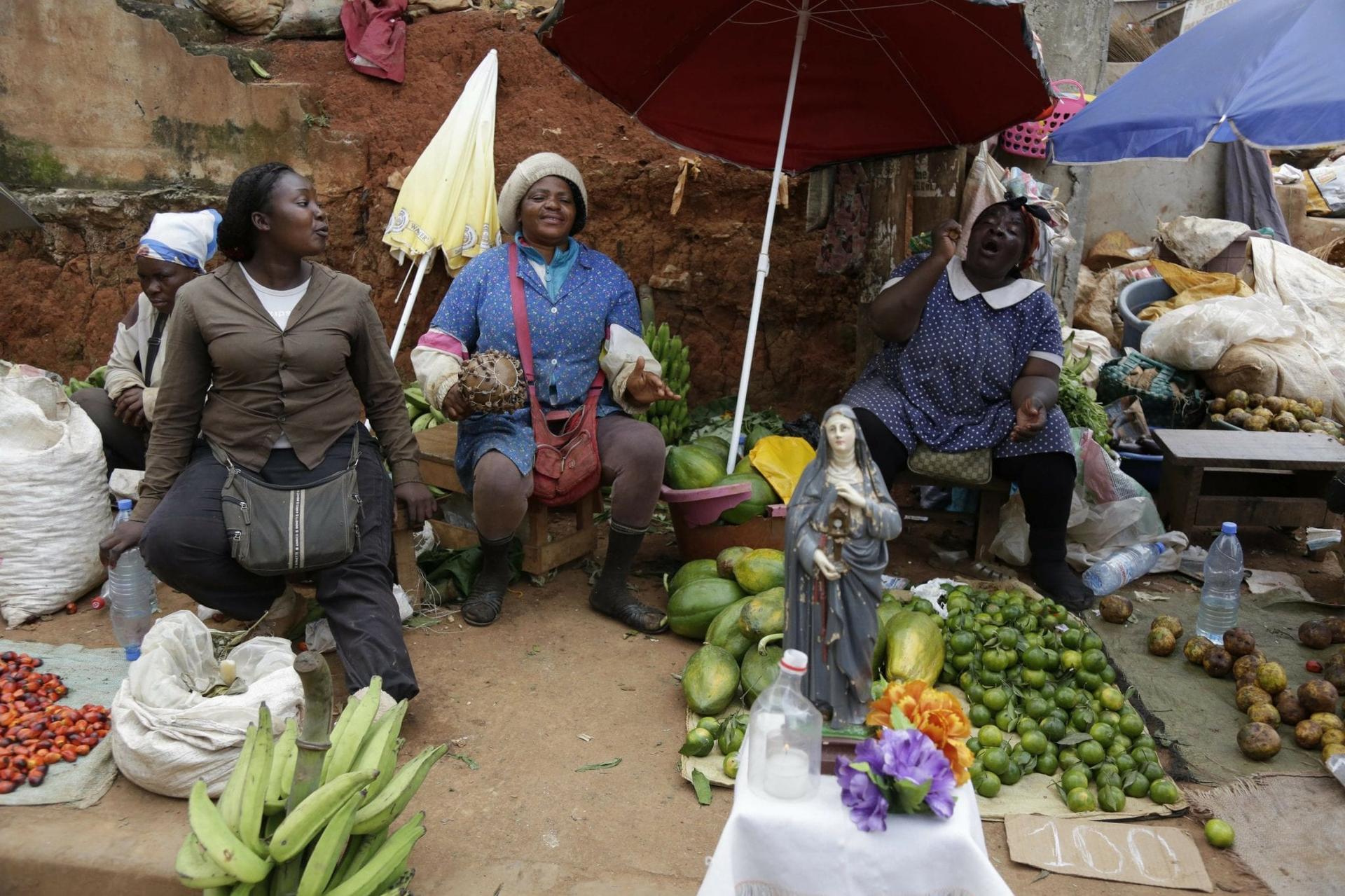YAOUNDÉ, Cameroon – A seminarian shot by Cameroonian soldiers has been called a “martyr of the Anglophone crisis” by the Archbishop of the largest diocese in the English-speaking areas of the French-speaking majority nation.
Archbishop Cornelius Fontem Esua of Bamenda used the phrase at the Oct. 16 funeral for 19-year-old Gérard Anjiangwe, who was killed on Oct. 4 in front of Santa Teresa Church in the village of Bamessing, in the northwest of the African country.
The North West and South West regions, which are English-speaking, have been engulfed in violent clashes dating back to October 2016.
Teachers’ and lawyers’ strikes over perceived attempts by the francophone-dominated administration to destroy the Anglo-Saxon-educational and legal systems practiced in Anglophone Cameroon mutated into political demands for independence by the Anglophone minority.
RELATED: Cameroon bishops say election results ‘decided before voting took place’
According to Bishop Michael Miabesue Bibi, an auxiliary bishop in Bamenda, Anjiangwe was killed following the morning Mass in the parish.
“A military van coming from Ndop stopped at the entrance of the road leading to the Church. Some of the military alighted from the van and started shooting. Some altar servers who were returning home after the mass ran back to the Church and others to the nearby bush,” he told Aid to the Church in Need, a Vatican-sponsored charity.
“The readers who were with Gerard near the sacristy, seeing the military coming, ran into the sacristy and closed the door whereas Gerard, who was still outside, prostrated on the ground while praying the Rosary. The military men tried to open the Church door but did not succeed. They approached Gerard lying prostrate on the ground and asked him to stand up, which he did without hesitating. After interrogating him, he was asked to lie down again. Then, he was shot three times on the neck and he died instantly. His father is a catechist and Gerard was the only son of the family,” the bishop said.
Gerard’s mother, Comfort Agwa Akiateh said at the funeral that she wasn’t worried about the fact that her only son died, but “the way he died.”
Priests and other clergy have become targets in the ongoing conflict between armed separatists and government forces in Cameroon’s English-speaking regions.
On July 20, Father Alexander Sob Nougi was gunned down on the Buea-Muyuka highway in Cameroon’s Southwest Province. Sob was the former Catholic education secretary and serving as the parish priest of Sacred Heart Church in Bomaka in the Diocese of Buea.
Catholic authorities said Sob may have been directly targeted.
“Father Sob was with two other people in his car when he was shot at close range with a silencer gun,” said Bishop Immanuel Bushu at the priest’s Aug. 11 funeral.
“His killers are here with us…and their consciences won’t let them rest,” the bishop said.
Just a week before Sob’s murder, Reverend Isaac Atoh, a Ghanaian Pentecostal pastor, was brutally killed by soldiers in Batibo in the country’s North West Region.
Speaking on Deutche Welle, the German radio station, Esua said the military has become an institution of fear.
“The people are afraid of the army. The people are terrorized by the army, and nobody seems safe in the hands of the army,” the archbishop said.
“You are guilty in front of them, and you are not even given the chance to tell them who you are. This is what is called extra-judiciary justice, if it’s justice at all – execution of innocent people, and there are quite a lot of such acts,” Esua said.
A Church caught in the middle
Miabesue Bibi said the Church is caught in the middle of the crisis.
“The role of the Church is simply to speak the truth and encourage dialogue,” the bishop said.
“But the Church is sandwiched between the government and the Amba Boys [the rebels]. Whatever the Church says, it is accused by one camp or the other. When the Church says that children have a right to go to school and should not be stopped from schooling, the Amba Boys think that the Church has been bribed by the government to say that. Some government officials have outrightly accused the Church of fueling the crisis through the various write-ups that we have produced. The Church believes in peace. But there can be no peace without justice. Justice and truth must prevail and that is what the Church stands for,” he told Aid to the Church in Need.
Despite this, the bishops are considered by many to be a key to peace in the country, which is 40 percent Catholic.
In May, the Brussels-based International Crisis Group issued a report on Cameroon saying other than the Catholic clergy, “there are few prospective peacemakers.”
“If no one fills that role, the separatist sentiment already voiced by many Anglophones will continue to grow, fueling further violence and exacerbating the ongoing insurgency in the Anglophone regions,” the report said, before noting the 2018 elections could be “a flashpoint.”















